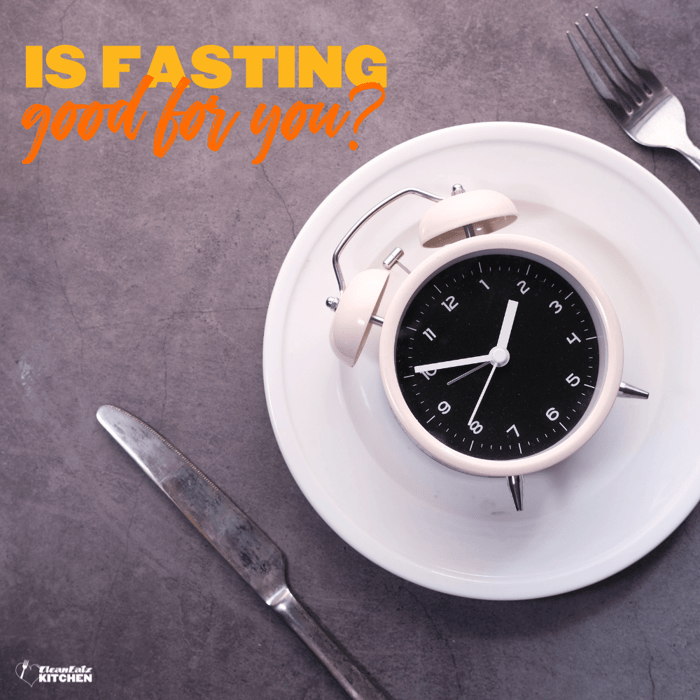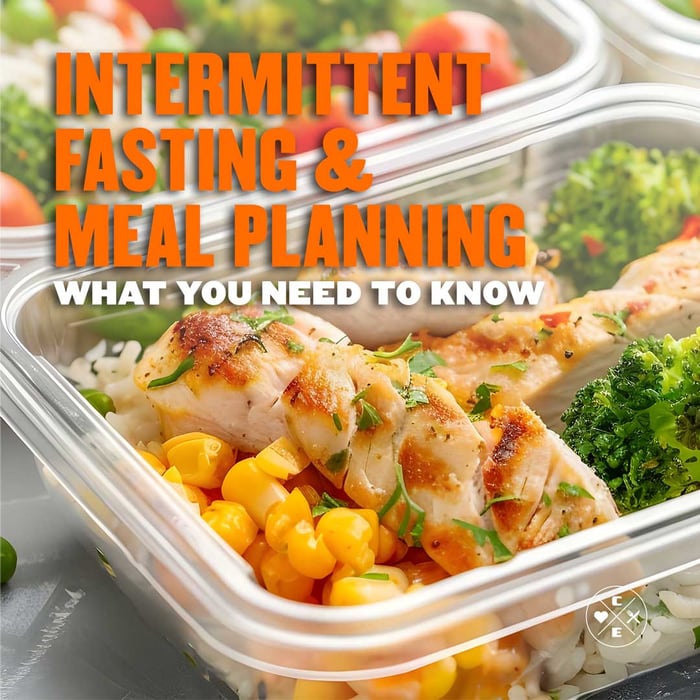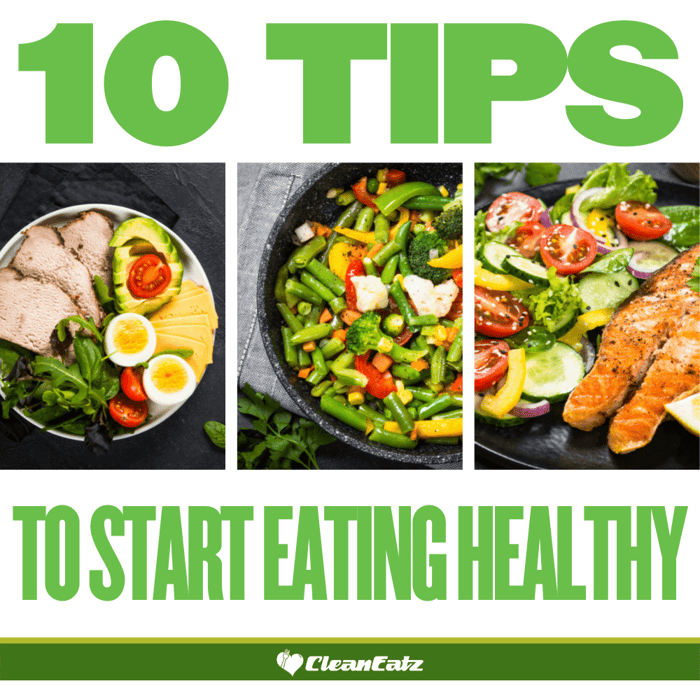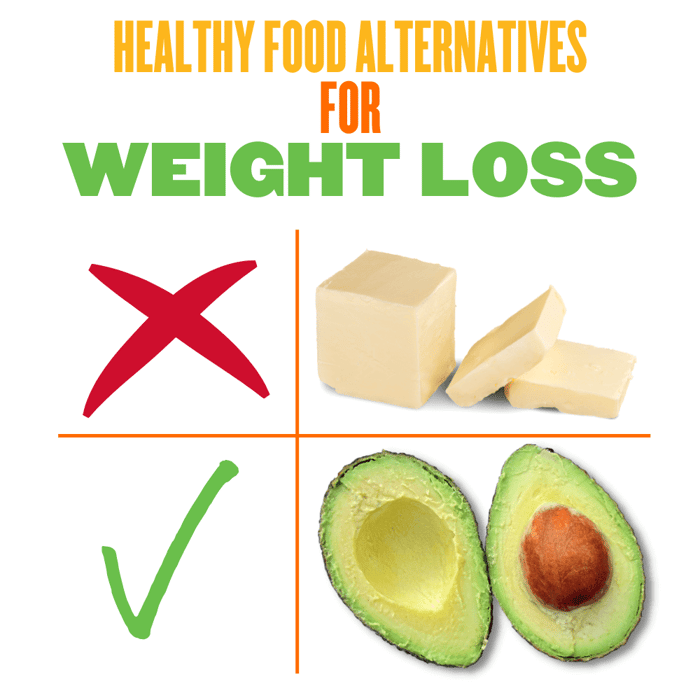Is Fasting Good for You? Benefits, Risks & How to Try It Safely

Jason Nista
Weight Loss
|
Healthy Lifestyle
10/09/2025 9:47am
4 minute read
Quick answer: Intermittent fasting (IF) can help some people lose weight and improve a few metabolic markers—mostly because it makes it easier to eat fewer calories. In trials, IF performs about as well as traditional calorie reduction. It isn’t magic, and it’s not appropriate for everyone (e.g., pregnancy, certain medical conditions, or people with a history of eating disorders). If you try it, keep protein high, choose fiber-rich foods, and stop if you feel unwell.
On this page
- What fasting is (and isn’t)
- Does fasting work for weight loss?
- Potential benefits & common risks
- Who should avoid fasting or talk to a clinician first
- How to try fasting safely (if you choose to)
- Sample day: time-restricted eating (16:8) done right
- What to eat from Clean Eatz Kitchen
- FAQ
What fasting is (and isn’t)
Intermittent fasting structures when you eat, not necessarily what you eat. Common versions:
- Time-restricted eating (TRE): daily eating window (e.g., 10 am–6 pm).
- 5:2: two lower-calorie days per week, five usual-intake days.
- Alternate-day fasting (ADF): low-calorie “fast” days alternating with usual-intake days.
Success still depends on overall food choices, protein/fiber intake, sleep, stress, and movement—not the clock alone.
Does fasting work for weight loss?
- Comparable to calorie counting: Newer reviews and trials generally find IF leads to similar weight loss and cardiometabolic changes as continuous calorie restriction when calories are matched.
- No special advantage for TRE vs counting: A 12-month trial of an 8-hour eating window did not beat daily calorie restriction for weight loss.
- Observational caution: One large analysis linked very short windows (<8 hours/day) with higher long-term cardiovascular mortality, but this kind of study can’t prove cause and effect. Use moderation and talk to your clinician if you have heart disease or cancer.
Potential benefits & common risks
Potential benefits
- Simplicity: fewer eating occasions can cut mindless snacking.
- Metabolic markers: some people see modest improvements in triglycerides, LDL-C, insulin, and blood pressure when weight comes down.
Common risks or downsides
- Hunger, low energy, or sleep disruption (especially at the start).
- Overeating in the window (negates the calorie gap).
- Medication timing or hypoglycemia risks for people on insulin or sulfonylureas—must coordinate with a clinician.
- Not appropriate with pregnancy/breastfeeding or a history of eating disorders.
Who should avoid fasting or talk to a clinician first
- Pregnant or breastfeeding
- Type 1 diabetes; type 2 diabetes on insulin or hypoglycemia-causing meds
- History of eating disorders or disordered eating
- Chronic conditions or medications that require regular food intake
How to try fasting safely (if you choose to)
- Pick a gentle window first: e.g., 12:12 or 14:10. You don’t need extreme windows.
- Hit protein + fiber: ~25–35 g protein per meal plus vegetables/beans/whole grains for fullness.
- Hydrate: water, unsweetened tea/coffee during the fast; add electrolytes for long/hot training days.
- Keep workouts: lift 2×/week and walk most days. Don’t “save” calories by skipping movement.
- Stop if unwell: dizziness, faintness, or persistent fatigue are reasons to pause and reassess.
Sample day: time-restricted eating (16:8) done right
- 10:00 — Greek yogurt bowl (yogurt + berries + chia) + whole-grain toast (≈30 g protein)
- 13:30 — CEK entrée + side salad or veg (aim ≥25–35 g protein; add fruit)
- 16:00 — Snack: cottage cheese + pineapple or hummus + peppers (10–20 g protein)
- 19:00 — Plate: lean protein + roasted veg + potatoes or brown rice (25–35 g protein)
Note: If mornings are your best training time, shift the window earlier (e.g., 8–16). The best window is the one you can repeat while sleeping well.
What to eat from Clean Eatz Kitchen
- Build-A-Meal Plan — locks 25–35 g protein per meal so your window still hits targets.
- Meal Plans — portion-controlled options that reduce overeating in the window.
- Cleanwich — quick protein anchor on busy days.
FAQ
Is fasting good for weight loss?
It can be—mainly because it helps some people reduce calories. Results are similar to traditional calorie counting when calories are matched.
Is 16:8 healthy?
It can be for some adults. Avoid extreme windows and prioritize protein, fiber, sleep, and movement. People with medical conditions should ask their clinician first.
Who should not fast?
Pregnant/breastfeeding people, anyone with a history of eating disorders, those with type 1 diabetes, and people on certain diabetes/other medications without medical supervision.
Does fasting boost metabolism?
No. Short fasts don’t “rev” metabolism; long or extreme diets can reduce energy expenditure. Focus on protein and strength training to protect muscle.
Can I work out fasted?
Light/moderate sessions are usually fine if you feel good. For intense or long sessions, many perform better with fuel; experiment and prioritize safety.



